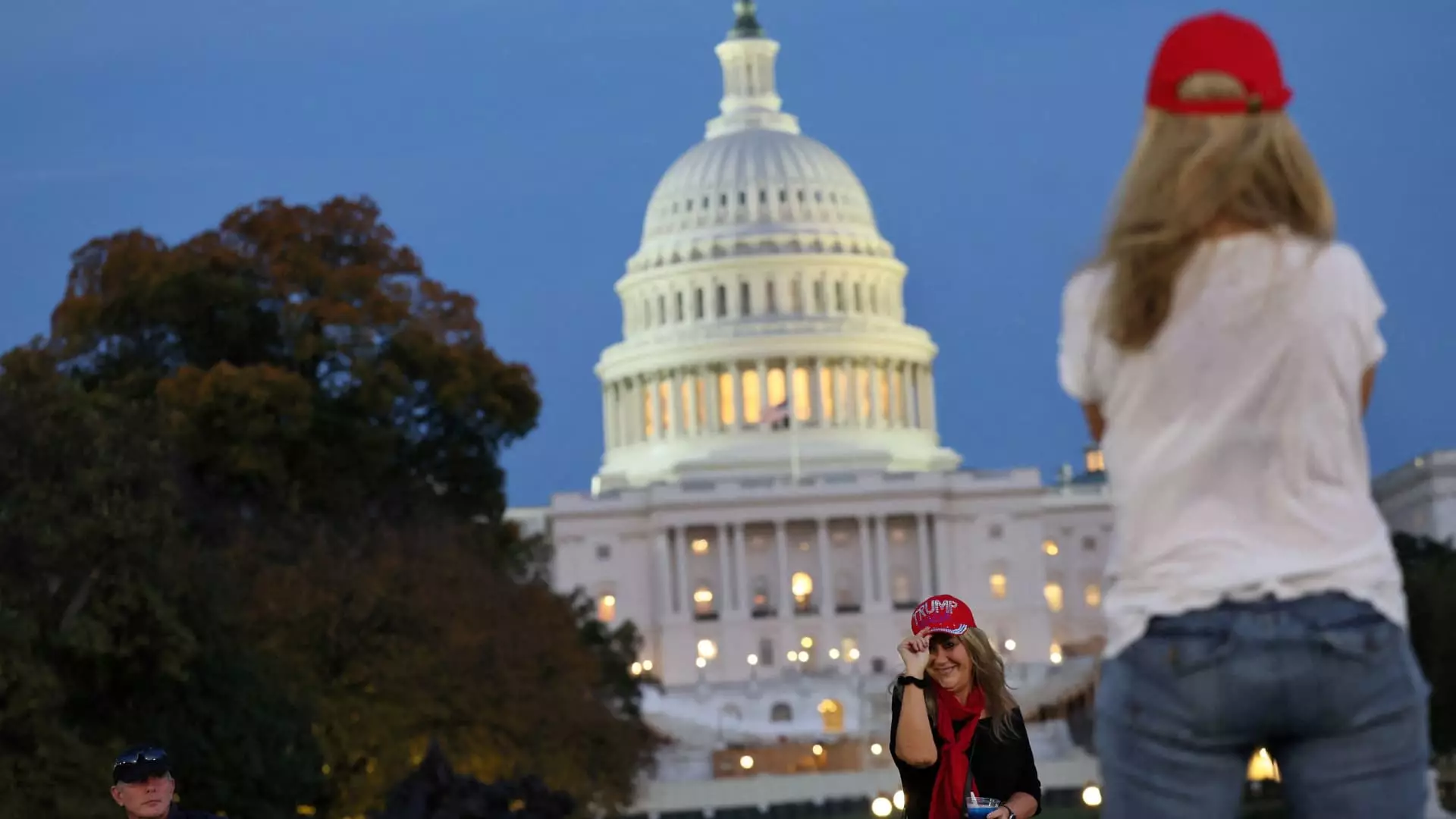The recent election of Donald Trump as President of the United States has generated considerable speculation surrounding the implications for individual investors and the broader financial markets. With the Dow Jones Industrial Average making significant gains immediately following the election, many individuals are eager to understand how they should respond. Financial advisors, however, urge caution. Instead of making impulsive financial decisions, they advocate for a thoughtful, long-term perspective that prioritizes each investor’s unique circumstances over immediate market reactions.
The markets have shown a notable rally in response to Trump’s victory, with the Dow crossing 44,000 for the first time. This spike has sparked optimism among many investors, leading some to view Trump’s election as a potentially positive force for market growth and investment stability. However, financial professionals warn against conflating short-term market gains with a long-term endorsement of the new administration’s policies. Market volatility is often a reaction to uncertainty, and while the election outcome may have provided clarity, the future remains unpredictable. Experts stress that it is critical to differentiate between a temporary market pop and sustained economic health directly linked to presidential policy.
In light of the recent market fluctuations, financial advisors recommend that investors adhere to pre-established financial plans. Jude Boudreaux, a certified financial planner, emphasizes the importance of long-term strategies that align with individual financial goals rather than succumbing to the allure of immediate changes driven by election outcomes. Similarly, Lee Baker, another financial expert, suggests that while adjustments may be necessary down the line, wholesale changes to investment strategies are ill-advised when the long-term implications are still unclear. This notion resonates particularly well in today’s context, where policy clarity and economic direction remain ambiguous.
For individual investors, the election results necessitate a careful consideration of their personal financial situations. Factors such as risk tolerance, time horizon, and specific financial goals should guide asset allocation, rather than reacting solely to political changes. Marguerita Cheng, a leading advisor, asserts that these core aspects of one’s financial health should remain consistent, regardless of the political landscape. Hence, an investor’s focus should be on maintaining a balanced portfolio aligned with their long-term objectives while being prepared to make minor adjustments as needed.
With Trump expected to adopt a more business-friendly stance, specific industries may experience gains. Sectors such as energy, finance, and industrials could be ripe for investment due to anticipated deregulation and favorable policy changes. However, financial advisors caution that while exposure to these sectors might be beneficial, diversifying through broad-based index funds can mitigate individual risks. A cautious approach ensures that investors can capitalize on potential sector growth without overexposing themselves to volatility that inherently comes with political decisions.
The financial world is also closely observing potential changes to tax legislation stemming from Trump’s election. Many analysts expect that tax cuts and reforms could be extended or accelerated, which would ignite economic activity and influence market performance. Previous legislation, such as the Tax Cuts and Jobs Act, established a precedent for lower tax rates but is set to expire soon, leading many to speculate that Trump’s presidency could revitalise similar incentives. However, experts are cautious about assuming such changes, noting that much remains to be hashed out in terms of actual policy implementation.
Despite the optimistic economic projections, there are looming concerns regarding inflation, particularly in light of Trump’s anticipated policies that could alter market dynamics. For instance, tariffs imposed on imports might trigger price increases, potentially stoking inflationary pressures. With a history of fluctuating interest rates, the Federal Reserve’s policies will likely be influenced by the overall economic climate shaped by Trump’s administration. The recent decision to cut rates was a response to current inflation trends, but future adjustments may hinge on economic performance under the new regime.
As individual investors navigate an uncertain financial landscape following the election of Donald Trump, the fundamental principle remains: a carefully constructed plan that factors in personal circumstances trumps market reactionary behavior. While the excitement of market rallies and potential growth opportunities may tempt hasty decisions, a grounded and deliberate strategy is vital for long-term financial health. Investors should stay informed, remain flexible, and prioritize their unique financial goals over the transient excitement of the market, ensuring they are well-positioned for whatever comes next.

